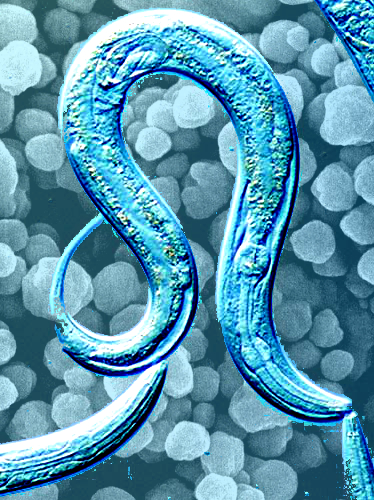Brain worm breaks ground
 An Australian woman has become the first known human to be infected with a parasitic roundworm linked to a carpet python.
An Australian woman has become the first known human to be infected with a parasitic roundworm linked to a carpet python.
Researchers from The Australian National University (ANU) and the Canberra Hospital made an astounding discovery during their investigation of a 64-year-old woman from southeastern New South Wales.
The woman's ordeal began with a live, eight-centimetre roundworm discovered in her brain, a parasite known as Ophidascaris robertsi.
The worm was removed during a surgical procedure while still alive and wriggling. Further examinations hinted at the presence of larvae or juveniles in other parts of her body, including the lungs and liver.
“This is the first-ever human case of Ophidascaris to be described in the world,” noted Associate Professor Sanjaya Senanayake, an infectious disease expert from ANU and the Canberra Hospital.
“To our knowledge, this is also the first case to involve the brain of any mammalian species, human or otherwise.”
Ophidascaris robertsi roundworms are typically found in carpet pythons, residing in the snake's oesophagus and stomach, ultimately passing their eggs in the snake's faeces.
Humans, when infected with Ophidascaris robertsi larvae, are considered accidental hosts.
These resilient roundworms can thrive in diverse environments and, in humans, may cause symptoms such as stomach pain, diarrhoea, loss of appetite and weight, fever, fatigue, and severe abdominal pain and vomiting.
The woman's likely encounter with this parasitic menace occurred during her collection of Warrigal greens, a type of native grass, near a lake close to her home.
The python, shedding the parasite in its faeces, likely contaminated the greens. Whether through direct contact or ingestion, the woman inadvertently contracted the roundworm.
Her health issues began in late January 2021 when she experienced abdominal pain and diarrhoea for three weeks, followed by a persistent dry cough, fever, and night sweats in the subsequent months.
In 2022, she started facing memory issues and depression, prompting an MRI scan.
It was during this scan that a neurosurgeon at Canberra Hospital stumbled upon an anomaly in her right frontal brain lobe.
Neurosurgery was performed, leading to the shocking discovery of the live and wriggling eight-centimetre roundworm.
Confirmation of its identity came through parasitology experts, initially through visual examination and later molecular studies.
This extraordinary case underscores the increasing risk of diseases and infections transferring from animals to humans as our habitats continue to overlap.
Associate Professor Sanjaya Senanayake highlighted this concern, noting that approximately 75 per cent of emerging infections worldwide are zoonotic, meaning they originate from animals.
While this Ophidascaris infection does not transmit between people, it serves as a stark reminder of the importance of hand hygiene and thorough washing of foraged materials for those who gather their own food.
The patient remains under the care of a team of infectious disease and brain specialists, and has reportedly demonstrated remarkable patience and courage throughout the unprecedented ordeal.
The research findings have been published in the journal Emerging Infectious Diseases and were conducted by a collaborative team of scientists and medical experts from ANU, Canberra Health Services, CSIRO, the University of Melbourne, and the University of Sydney.








 Print
Print